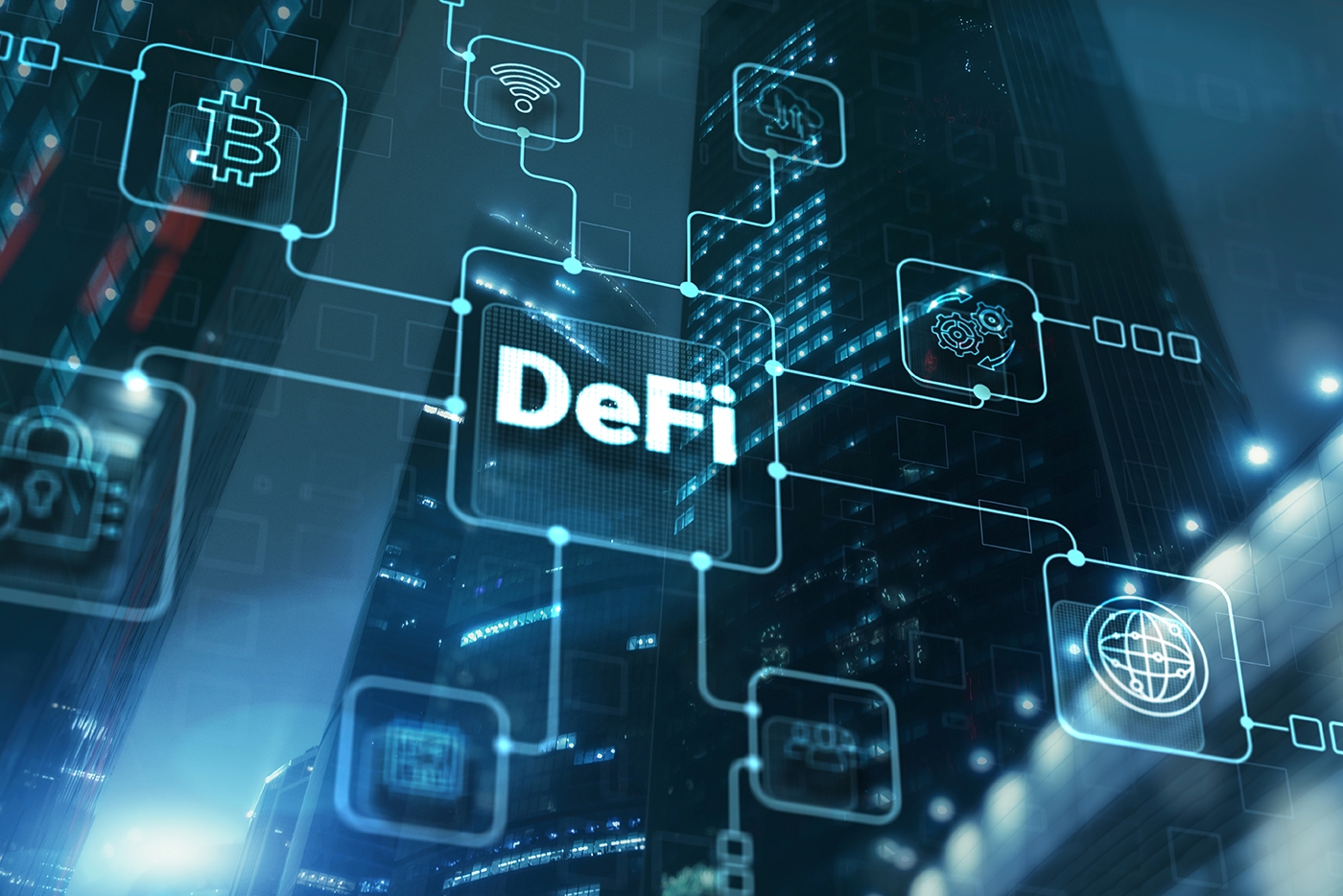From DeFi To ReFi: How The Future Internet Will Upend Your Financial World
22 August 2023
The rise of Web3, especially blockchain technology, will be utterly transformative for many service-based businesses. Any business that functions as an intermediary service or middleman could be threatened by blockchain and smart contracts – including financial service providers and other service-based industries – because the technology allows two parties to safely transact and do business without a third party overseeing the interaction.
There are opportunities, however, as well as threats: opportunities to provide better customer service, streamline internal processes, and create exciting new services that are designed for the future internet.
Let’s dive into these changes and their effects on various industries.

Financial Services
In financial services, particular trends to watch include DeFi (decentralized finance), investing in digital assets, ReFi (regenerative finance), blockchain-based lending, and blockchain-based money transfer networks.
DeFi is the term used to describe a new internet-native, crypto-based financial system that replaces traditional intermediary services with smart contracts and blockchains in a peer-to-peer system, allowing people to trade directly with each other without the help of a centralized bank.
It has the potential to strip out the inefficiencies of traditional banking, increase access to banking services, and democratize the lending process. However, it also lacks regulation and consumer protections and creates risks of scams and fraud. The DeFi movement ultimately aims to create an internet-native financial system that is built for the web3 era.
One of the major web3 aspects to impact financial services is, of course, cryptocurrency. Crypto is a major asset class in its own right, but we also have NFTs (which are bought and sold in crypto), creating a new wave of digital assets. Financial institutions must decide whether they want to get involved with web3 assets and include them in portfolios alongside traditional assets. In other words, web3 could impact traditional approaches to asset management and wealth management – providing new ways to invest and grow clients' wealth.
Blockchain technology can also be used to ensure that investments are made more ethically in the global fight against climate change. Traditional financial organizations often do not consider the climate impact of companies they invest in however many investors want to invest in ways that benefit the planet. Blockchain can be used to verify an organization's green credentials and coordinate investment to ensure funding goes where it is needed most. This idea is known as regenerative finance (ReFi), which is focused on the intersection of climate action and web3, particularly blockchain, to create systems that restore and preserve natural resources.
Blockchain is also being used to transform lending by cutting out the intermediary, allowing depositors to directly lend money to borrowers through smart contracts, which manage the loan and repayment process. This is part of the decentralized finance (DeFi) movement, with over $200 billion worth of loans disbursed by web3 lending platforms in 2021.
The blockchain-based money transfer network Ripple gives us a glimpse of the future of money transfer. Ripple is a blockchain-based money transfer network that facilitates money exchanges across a variety of government-back currencies, cryptocurrencies, and assets like gold. It serves as a trusted facilitator of transactions between two parties, similar to traditional financial services providers, but is built for the web3 era. Transactions are processed quickly, with low fees.
IT Industry
IT is another industry being affected by decentralization, especially when it comes to decentralized data storage. With this model, businesses and individuals can rent storage space from other users in peer-to-peer storage networks – or earn money by renting out their own spare storage.
This approach promises to solve some of the problems with the current centralized approach, such as increased security and the ability to preserve data for longer.
Another interesting effect of decentralization is the emergence of the blockchain-based network. Helium, which describes itself as “the people’s network,” creates a fully decentralized network that users effectively build themselves. It completely undermines the traditional business models of telecom companies and internet service providers, with over half a million global hotspots as of early 2022.
Other Businesses
Really, any service-based business can expect to be impacted by web3 and the metaverse. Architects, for example, will be designing in and for the metaverse, insurance firms could benefit from smart contracts, and law firms may need to advise on metaverse legal issues.
I believe every service-based business – indeed, every profession – will be impacted by web3 and the metaverse to some extent or another. Accountants, for example, could adopt smart contracts and crypto payments with their clients. HR professionals could onboard new talent, especially remote workers, in an engaging metaverse-based environment. Real estate agents could create immersive property tours in the metaverse to market their real-world properties, use AR to “dress” empty properties for viewings, or even pivot to marketing virtual real estate in the metaverse.
Knowledge Is Power
You could say that many industries and professionals are under threat from the future internet. But there are also exciting opportunities to adopt new technologies, streamline services, or provide immersive new service offerings.
Awareness and adjustment will be key traits of businesses that thrive amidst these changes; successful businesses will take action to minimize threats and maximize opportunities.
Related Articles
4 Game-Changing Quantum Computer Types That Could Transform Everything
By now, “smart” versions exist of just about every home appliance, gadget and gizmos we can think of. However, manufacturers continue[...]
AI’s Competitive Edge: Turning Data Challenges Into Business Success
By now, “smart” versions exist of just about every home appliance, gadget and gizmos we can think of. However, manufacturers continue[...]
Sign up to Stay in Touch!
Bernard Marr is a world-renowned futurist, influencer and thought leader in the fields of business and technology, with a passion for using technology for the good of humanity.
He is a best-selling author of over 20 books, writes a regular column for Forbes and advises and coaches many of the world’s best-known organisations.
He has a combined following of 4 million people across his social media channels and newsletters and was ranked by LinkedIn as one of the top 5 business influencers in the world.
Bernard’s latest book is ‘Generative AI in Practice’.






Social Media